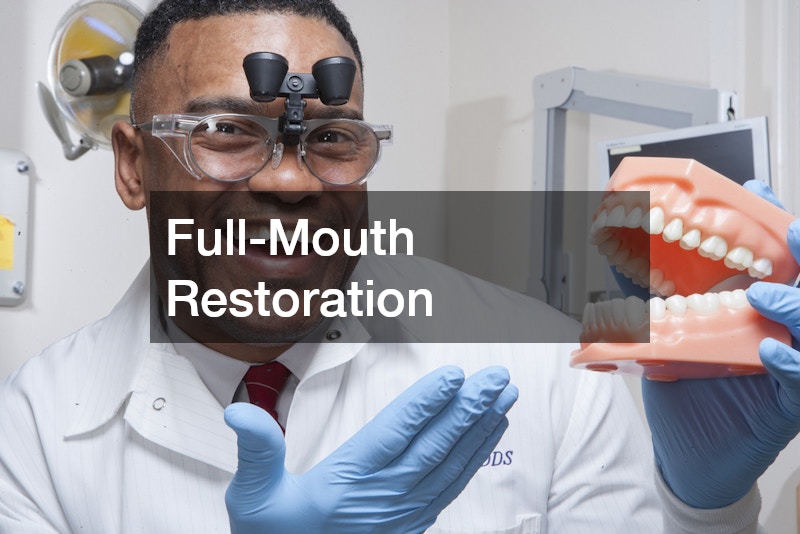12 Supplemental Services to Offer within Your Dental Office or Through Referral Partners

In today’s competitive healthcare environment, dental offices must do more than offer routine cleanings and cavity fillings to stand out. One increasingly popular strategy is to offer or recommend a broader range of supplemental services either in-house or through a network of trusted referral partners. This approach not only improves patient care but also helps establish your practice as a comprehensive health hub, ultimately boosting patient retention and increasing revenue. By anticipating and addressing patient needs that extend beyond traditional dental care, you can offer real value and convenience that sets your practice apart.
Supplemental services encompass everything from cosmetic enhancements to therapeutic treatments and collaborative care with medical specialists. These offerings reflect a patient-centered model, recognizing the interconnectedness of oral and overall health. Services like pediatric dentistry, four on four dental implants, and injectables can be offered on-site, while partnerships with vascular clinics, dry eye doctors, and local heart surgeons enable seamless care continuity. Patients appreciate these additional options because they can address multiple health concerns under one roof or through a trusted dental referral.
For many patients, visiting the dentist is no longer just about oral hygiene—it’s about improving overall wellness and aesthetic appeal. As expectations evolve, dental professionals who proactively integrate these additional services can remain competitive in a growing and demanding marketplace. Furthermore, offering supplemental services allows your office to tap into cross-disciplinary trends in healthcare, where collaboration between medical professionals leads to better patient outcomes.
Adding these services is also an opportunity to build trust. When a patient knows their dental provider can coordinate care with specialists like a chiropractic clinic or dry eye doctor, they’re more likely to feel confident in the advice and referrals they receive. That confidence can increase loyalty and lead to more consistent appointment scheduling, better compliance with treatment plans, and more word-of-mouth referrals.
This blog explores twelve valuable supplemental services you can incorporate within your dental practice or offer via referral. These services cater to diverse needs—from improving quality of life with massage therapy services and back pain remedies to coordinating care for complex conditions like whiplash therapy. Each section provides insight into the service’s benefits, ideal implementation strategies, and how it fits within a dental care ecosystem. With patients increasingly looking for holistic care experiences, dental offices that embrace these opportunities can enhance both patient satisfaction and long-term success.
1. Full-Mouth Restoration

Offering four on four dental implants as part of your supplemental services can position your dental office as a leader in restorative solutions. This technique is ideal for patients who need complete tooth replacement but want to avoid removable dentures. The implants are strategically placed to support a full arch of prosthetic teeth, providing a natural appearance and stable function.
This service not only improves oral health and functionality but also restores confidence in patients who may have avoided smiling or eating in public. Many patients seek dental practices that can handle this procedure without multiple referrals, making in-house capabilities a significant advantage. However, if your office isn’t equipped for surgical implant placement, partnering with a specialist allows you to coordinate care efficiently and still offer comprehensive treatment plans. Promoting this advanced option helps differentiate your practice and meet the needs of an aging population with growing tooth loss concerns.
2. Family-Focused Dentistry
Integrating pediatric dentistry into your practice or establishing strong referral connections with pediatric specialists can significantly enhance your supplemental services. Parents value the convenience and assurance of coordinated care for their children, especially in practices already serving the family’s dental needs.
Children require specialized attention and techniques to ensure positive experiences and lifelong dental habits. A pediatric specialist can address early issues like misaligned bites, thumb-sucking, or dental trauma. Offering age-appropriate education, behavior management, and gentle sedation options can increase parent trust and boost your practice’s reputation. If in-house pediatric services aren’t feasible, consider forming referral partnerships with nearby pediatric dentists and actively co-manage patient care. This ensures seamless transitions and consistent communication, elevating the family’s perception of your dental office as a holistic care provider.
3. Cosmetic Confidence
Expanding into cosmetic injectables such as Botox or dermal fillers is a strategic way to diversify your dental office’s supplemental services. Many patients interested in aesthetic dentistry are also concerned with facial symmetry, wrinkles, and fine lines. Dentists already have an in-depth understanding of facial anatomy, making them well-suited to administer injectables safely and effectively.
Offering these enhancements in-house provides convenience for patients and increases the likelihood they’ll explore additional cosmetic procedures, such as veneers or whitening. These treatments can be particularly appealing post-orthodontics or post-reconstructive work, giving patients a comprehensive smile makeover. Providing injectables aligns with the growing trend of medspa-style dental offices that blend wellness, beauty, and oral health. With appropriate training and certification, your practice can attract a broader patient base while staying ahead of aesthetic care trends.
4. Whole-Body Wellness
Dry ey e syndrome is often linked with inflammation and systemic health issues, some of which may overlap with oral conditions. Partnering with a dry eye doctor as part of your supplemental services can help create a more holistic approach to patient care. Dentists frequently observe early signs of autoimmune diseases like Sjögren’s syndrome, which affects both oral and ocular health.
e syndrome is often linked with inflammation and systemic health issues, some of which may overlap with oral conditions. Partnering with a dry eye doctor as part of your supplemental services can help create a more holistic approach to patient care. Dentists frequently observe early signs of autoimmune diseases like Sjögren’s syndrome, which affects both oral and ocular health.
Collaborative care with an eye specialist allows for early intervention and accurate diagnoses, benefiting patients dealing with chronic discomfort or unaddressed symptoms. Educating patients on the oral-systemic connection and offering targeted referrals strengthens trust and improves health outcomes. Creating a care loop between dental and vision professionals can differentiate your practice as one that prioritizes total wellness.
5. Collaborating for Complex Cases
Oral health has undeniable links to cardiovascular health, making partnerships with vascular clinics an intelligent addition to your supplemental services. Gum disease has been associated with increased risks of atherosclerosis and stroke, making collaboration with vascular specialists crucial for at-risk patients.
Your dental office can play a key role in early detection and management by screening for signs of systemic inflammation or circulatory concerns. Referring patients to vascular clinics for further evaluation can save lives and build a stronger continuum of care. Additionally, incorporating vascular risk assessments into dental consultations helps position your practice as a wellness-forward clinic. Such partnerships show your commitment to proactive health management, potentially opening the door to shared marketing, co-hosted educational events, and cross-referrals.
6. Nutritional Counseling
Incorporating nutritional counseling into your practice is a valuable way to expand your supplemental services. Diet directly impacts oral health, influencing everything from enamel erosion to gum disease. Providing patients with evidence-based advice on sugar intake, acidity, and nutrient deficiencies can significantly improve their dental outcomes.
This service can be offered in-house through a trained staff member or through a partnership with a licensed nutritionist. You might also consider creating custom wellness plans that link dental care with overall health goals. For instance, patients seeking to improve both oral hygiene and weight management may benefit from coordinated strategies. Nutritional counseling helps reinforce your role as a health educator and elevates your reputation as a comprehensive care provider.
7. Supporting Recovery

Post-surgical dental care is often overlooked in the broader recovery process. By working closely with local heart surgeons, your dental office can provide essential supplemental services that support cardiovascular patients. Certain cardiac procedures require dental clearance or follow-up due to infection risks linked to oral bacteria.
Your team can coordinate antibiotic prophylaxis and monitor signs of inflammation that could complicate heart conditions. Sharing patient information (with consent) ensures timely interventions and safeguards recovery. Establishing these partnerships also increases the likelihood of reciprocal referrals, especially for patients needing pre-surgical dental clearance. Demonstrating an understanding of post-op care builds credibility and deepens patient trust.
8. Relieving Discomfort
Many patients suffering from car accidents or sports injuries experience secondary dental issues like TMJ dysfunction or tooth sensitivity. Coordinating with providers who offer whiplash therapy enhances your supplemental services by ensuring patients receive comprehensive musculoskeletal care.
By asking detailed intake questions and being aware of potential whiplash symptoms, you can refer patients to physical therapists or chiropractors who specialize in trauma recovery. This not only addresses pain but may prevent long-term complications. Dental patients who experience bite misalignment or facial pain post-trauma will benefit from coordinated care, and your proactive approach will set you apart from less integrative practices.
9. Referring to a Clinic
Temporomandibular joint disorders (TMD) can cause significant discomfort and impact a patient’s quality of life. Creating a referral network with a reputable chiropractic clinic is a smart addition to your supplemental services, especially for patients experiencing jaw pain, neck stiffness, or chronic headaches.
Chiropractors trained in neuromuscular adjustment techniques can provide relief through spinal alignment and targeted exercises. This type of interdisciplinary care demonstrates a well-rounded approach to dentistry. Your patients will appreciate a referral that acknowledges their whole-body needs while maintaining continuity in dental care. It also enhances your role as a health advocate and resource.
10. Using Technology

Patients often discuss general discomfort during dental visits, including neck and back pain. Recommending evidence-based back pain remedies as part of your supplemental services can build credibility and demonstrate concern for patient well-being.
While your practice may not directly treat these issues, offering educational brochures, ergonomic tips, or referral information shows that you’re attentive to common concerns. Highlighting these resources on your website or in waiting areas can prompt meaningful conversations. Aligning your dental brand with total body care helps distinguish your office in a competitive market.
11. Enhancing Wellness
Integrating massage therapy services into your dental practice or referral network enhances patient comfort and recovery. This supplemental service is especially useful for patients with TMJ disorders, anxiety, or muscular tension related to dental procedures.
Therapeutic massage can be offered as a pre-treatment relaxation tool or post-procedure recovery aid. You might also collaborate with licensed massage therapists to provide off-site care and wellness packages. Marketing this offering helps appeal to patients looking for stress-free dental experiences. Massage therapy demonstrates your commitment to whole-patient health, promoting both loyalty and satisfaction.
12. Offering Comprehensive Wellness
The most successful supplemental services strategies rely on thoughtful coordination and trusted partnerships. Dental offices can offer true wellness experiences by working with specialists in diverse fields such as dermatology, audiology, mental health, and more. For example, combining dental cleanings with cosmetic consultations or offering same-day referrals to holistic care practitioners ensures that your office becomes a wellness destination.
Encourage your team to identify patient needs beyond the mouth and maintain a vetted list of referral partners. Whether through shared electronic health records, warm hand-offs, or follow-up calls, creating a seamless experience boosts patient confidence. This final section underscores the importance of consistency, clear communication, and patient-first values in building a well-rounded network of services. Patients are more likely to return, refer others, and invest in their health when they feel genuinely cared for across every aspect of their visit.
Offering supplemental services within your dental office or through a trusted referral network is more than a business strategy—it’s a commitment to whole-patient wellness. As healthcare becomes increasingly integrated, patients are seeking dental practices that understand their needs go beyond cleanings and fillings. From high-end solutions like four on four dental implants to holistic touches like massage therapy services, every addition creates new value.
The services outlined in this blog not only improve patient health but also enhance your reputation as a modern, comprehensive provider. Building partnerships with professionals like dry eye doctors, vascular clinics, and local heart surgeons allows you to participate in broader health conversations and offer personalized care. Meanwhile, embracing innovations like injectables and strategic collaborations with a chiropractic clinic or whiplash therapy providers bridges the gap between dental and medical health.
Your practice’s success lies in its ability to adapt and innovate. By expanding your offerings and showing patients that you care about their total well-being, you create meaningful relationships that stand the test of time. Whether it’s offering in-office treatments or directing patients to reliable back pain remedies, these steps prove that your team is invested in patient health from every angle. Start with just one service or referral relationship, and watch how it elevates every aspect of your dental business.